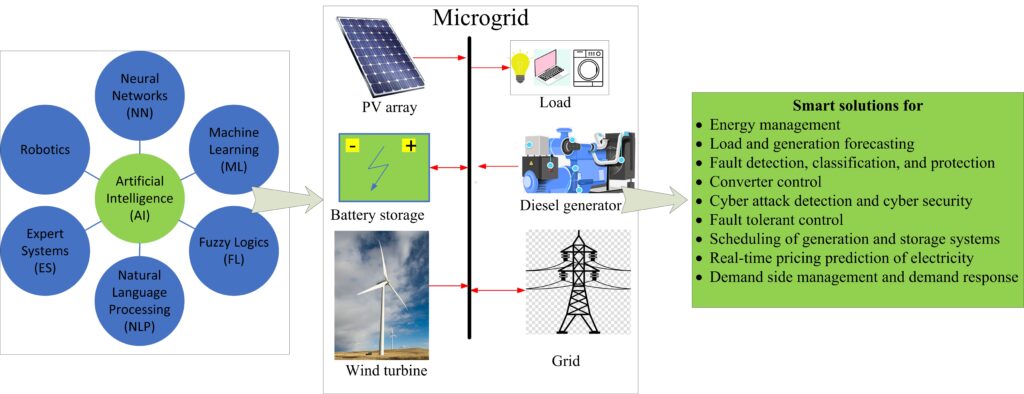A Review on Application of Artificial Intelligence Techniques in Microgrids
Authors: Ebrahim Mohammadi, Mojtaba Alizadeh, Mohsen Asgarimoghaddam, Xiaoyu Wang, and Marcelo Godoy Simões
Extended Abstract:
Fossil fuels with their environmental pollution and low efficiency impact the traditional and conventional power systems. These issues have been supporting a new paradigm of electricity generation locally at the distribution level, with renewable and alternative sources, making possible non-conventional distributed energy resources (DERs). Those are typically called as microgrids (MGs), there are other denominations as well. The main idea is to have microgrids deployed on low- or medium- voltage active distribution networks. They can be advantageous in many different ways, such as improving the energy efficiency and reliability of the system, reducing transmission losses and network congestion, and integration of clean energies. Despite those clear advantages, there are yet challenges in implementing MGs with DER units, those are related to power quality and stability issues – MG’s voltage and fault level changes, energy management, low inertia, further complex protection schemes, load and generation forecasting, cyber-attacks, and cyber security.
MGs should operate in grid-connected and isolated modes, with energy management and protection schemes that become more intricate than those in the usual distributed networks. Moreover, due to the rapid load variation in MGs and the variable renewable energy resource generation, load/generation forecasting is needed in applications such as energy management.
Microgrids rely on information and communication technologies and as such, their security is critical, and they might be vulnerable to different types of cyber-attacks so that cybersecurity techniques can provide safe operation of MGs.
In order to address all those challenging features, this paper proposes the deep utilization of advanced, accurate, and fast methodologies such as artificial intelligence (AI)-based techniques. They guarantee efficient, optimal, safe, and reliable operation of MGs. AI refers to the computer-based systems’ ability to perform tasks with intelligence typically associated with human decision making. AI-based systems can learn from past experiences and solve problems. AI has been used in different applications, including MGs, to improve system performance.
This paper presents a review on different applications of AI-based techniques in microgrids such as energy management, load and generation forecasting, protection, power electronics control, and cyber security. Different AI tasks such as regression and classification in microgrids are discussed using methods including machine learning, artificial neural networks, generative adversarial networks, graph neural networks, fuzzy logic, support vector machines, etc. As an example of application of AI in MG, design of a small-scale wind farm integrated into a microgrid for intelligent monitoring and protection is discussed. Finally, the advantages, limitations, and future trends of AI applications in microgrids are given.


